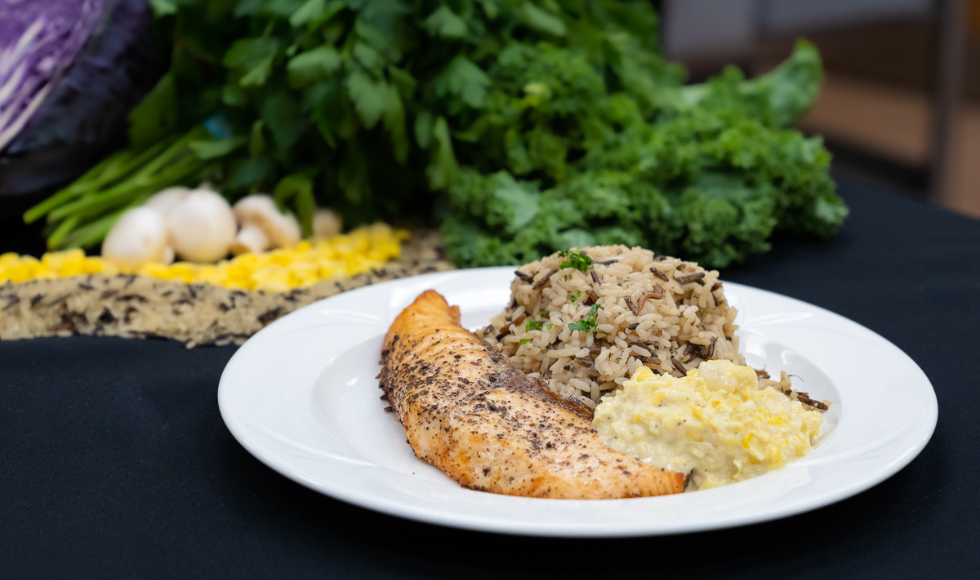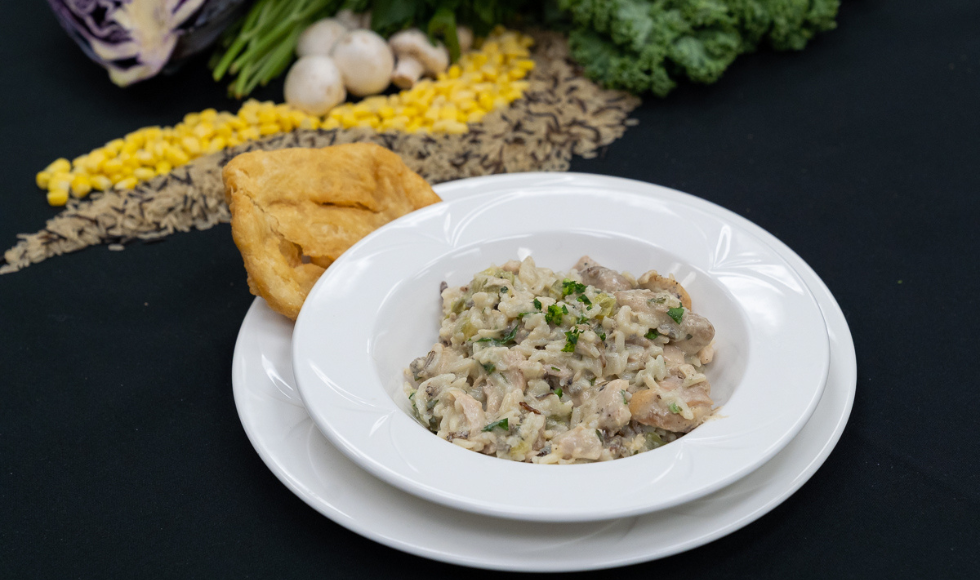Enjoy some Haudenosaunee flavours on campus

Global Comfort Food in La Piazza is serving a menu full of Indigenous dishes on March 30, as part of the Indigenous Studies department the launch celebration.
If you head to Global Comfort Food in La Piazza on Thursday, March 30, you’ll have your choice of an array of Indigenous menu items, including three sisters stew, sumac salmon and wild blueberry chicken.
The special menu is part of this week’s celebration of the launch of the Indigenous Studies Department, but the dishes have been part of Global Comfort Food’s rotating menu for a few years.
Not enough of people know that, notes Indigenous Studies and anthropology assistant professor Adrianne Lickers Xavier, an expert on Indigenous food security and sovereignty and a member of the McMaster Campus Food Council.
Having these dishes on the menu shows that Indigenous students deserve space across campus, and it’s important for students and others to know about the representation, Xavier says.
“When you have students from all over, the ability to see themselves represented is important,” she says. “This is just one small way that we are recognizing that these students are welcome here and belong here.”
The food at La Piazza might not be the same as what they ate at home, she notes.
“But it still gives you a connection to the place you’re in, the people you’re with and the place you came from, and that’s meaningful.”
At the same time, not every Indigenous person on campus can or will feel that connection to their past through the food — that simply hasn’t been possible for many people because of colonialism, Xavier says.
“But we have an opportunity to give everyone the chance to form that connection through food just by making it available.”
Even if it’s their first time trying any of these dishes, they can still eat something that they know is connected to their culture and to being Indigenous in this country, “and that is huge,” she says.
And because food is a natural connection point for people and communities everywhere, it’s a vital part of the relationships students forge with one another on campus.
“There’s a universality — we all eat. We don’t all eat the same things at the same times, but we understand and accept that.” For a long time, people in what was the Indigenous Studies program would get together on Tuesdays to make soup together. Lately people will bring in a pot of soup or a dish, and everyone gathers around to share.
“When I think about the way our community gathers over food, it’s more than just fuel. It’s a social thing, a connection thing. All the things that open doors for us,” she says.

McMaster executive chef Paul Hoag worked with Indigenous Elders a few years ago to develop the La Piazza menu, says John Barreda, chef manager for hospitality services.
“The Elders educated Paul and the Hospitality department on the reasons and meaning behind ingredients and how each dish came to be,” Barreda says.
And the ingredients are meaningful. Berries are an indication of the turn of seasons and a time of cleansing. The three sisters recipes are based on a Haudenosaunee legend about three very different sisters and their relationship: The corn supports the growing beans; the beans enrich the soil; and the squash covers the ground and protects the soil and roots.
In fact, you can think of every student as one of the three sisters, Xavier notes: “Some offer support, some need support and some give protection.”

